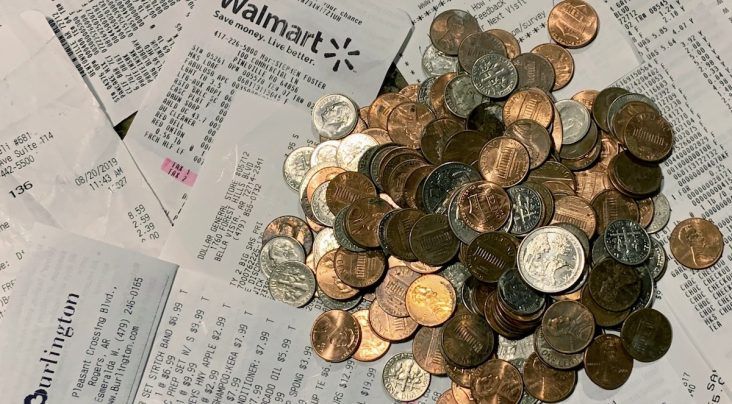Fort Smith sales tax revenue up more than 16% in first six months
by July 25, 2021 11:50 am 444 views

Fort Smith’s sales tax revenue continues the strong trend it has seen for the past year as June’s sales tax revenues were higher than the same time last year and above what was budgeted for 2021.
“Fort Smith is financially secure and the higher sales tax collections, which have occurred for over one year, are not due to any one-time issue and can be partially annualized in future budgets. The numbers tell me that Fort Smith and the State of Arkansas are stronger financially and economically than we all thought before and after COVID,” City Administrator Carl Geffken said in June.
The city’s share of the Sebastian County sales tax garnered $1.73 million in June, 12.33% higher than $1.54 million in June 2020, according the city’s June sales tax report. Numbers in June’s report reflect May transactions. In the 2021 budget, the city budgeted $1.54 million, the same amount the sales tax generated in June 2020, so the revenue is up 12.33% from the budget.
In the first half of the year, the city has collected $10.206 million from its portion of the county sales tax, a 16.41% increase from the $8.767 million collected in the first six months of 2020. The city’s share of the countywide tax is important because the revenue provides money for the city’s general fund budget, with much of that budget paying for police, fire and other essential city services.
“We are happy with (the numbers in this report) because it shows that our economy is strong,” said City Director Neal Martin. “People are working and able to spend those hard earned dollars on things to improve their lives. We’ve been on a pretty good course over the last 12 months and the strength of our economy has been on display during these 12 months. 2021 has been one of the most significant years in terms of job announcements, building projects, and revenue and I think it shows that the Fort Smith economy is surging. Business owners see that and want to invest here and add jobs, which affects our citizens directly.”
Fort Smith’s 1% street tax – used for maintenance and new construction on streets, bridges and drainage – generated $2.18 million in June, a 14.02% increase from the $1.91 million in June 2020. Again, the budget estimate was what the city made in June last year, so the revenue is 14.02% above the budget estimate. So far for the year, the city has collected $12.844 million, up 1772% from the $10.910 million collected in the first two quarters of 2020.
Martin said double digit growth every month cannot continue indefinitely. But while revenue could decrease at some point, Fort Smith has been resilient in the light of everything that has hit in the past few years including the COVID-19 pandemic.
“I am happy to see these numbers, and we will work to continue forward progress,” he said.
Director Lavon Morton agreed that the city’s positive tax revenue stream should continue through the rest of 2021.
“Sales tax collections continue to be strong, and I expect this to continue through at least the end of the year,” Morton said.
In 2020, Fort Smith’s share of the 1% Sebastian County sales tax was $18.246 million, up 5.7% over 2019, and up 5.52% over the city’s budget estimate. The 2020 total was $953,824 more than city officials budgeted to spend within the general fund budget. The tax has posted year-over-year gains for the past five years, but 2020’s jump was the largest seen during that time period.
The 1% street tax generated $22.66 million in 2020, up 4.02% over 2019, and up 6.08% over the budget estimate. The 2020 total was $1.298 million more than city officials budgeted to spend on the street tax program.
PREVIOUS ANNUAL COLLECTION INFO
Fort Smith 1% sales tax collection for streets
2020: $22.66 million
2019: $21.73 million
2018: $21.503 million
2017: $21.204 million
2016: $21.156 million
Fort Smith portion of 1% countywide sales tax
2020: $18.246 million
2019: $17.265 million
2018: $17.043 million
2017: $16.691 million
2016: $16.58 million
